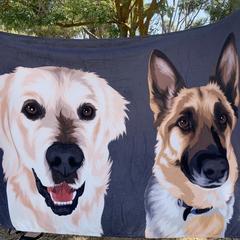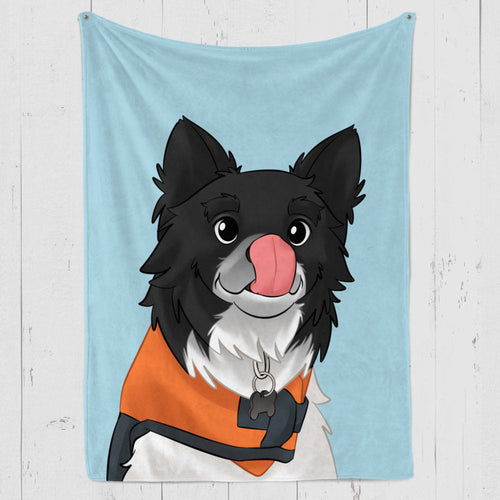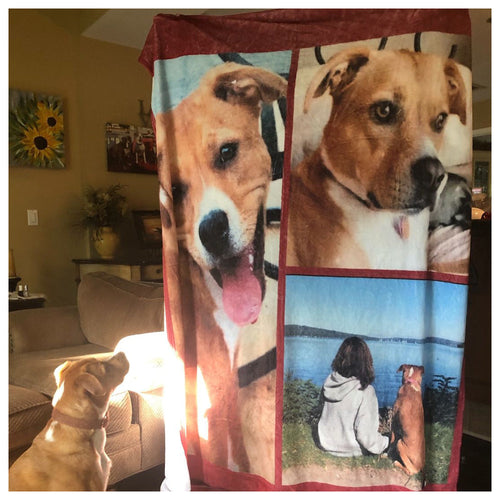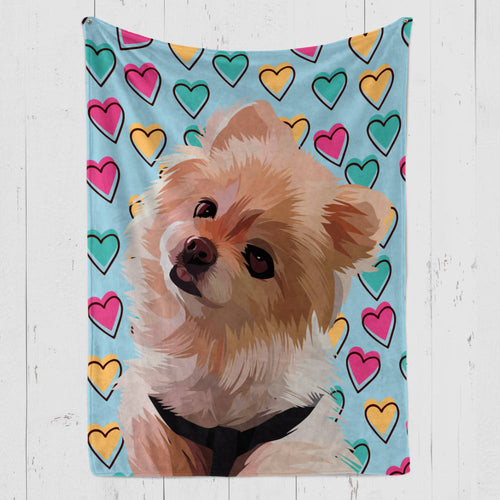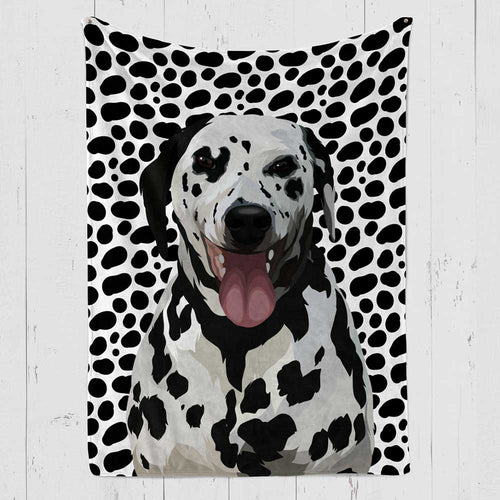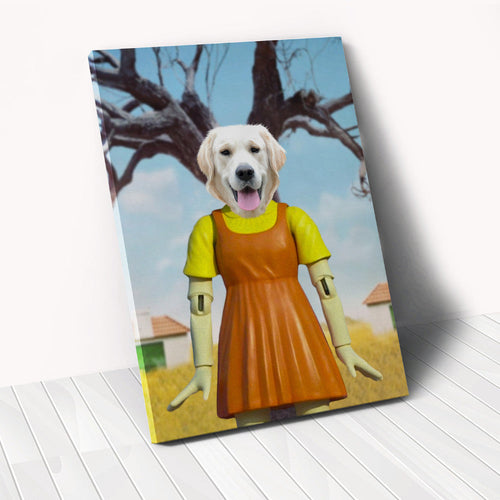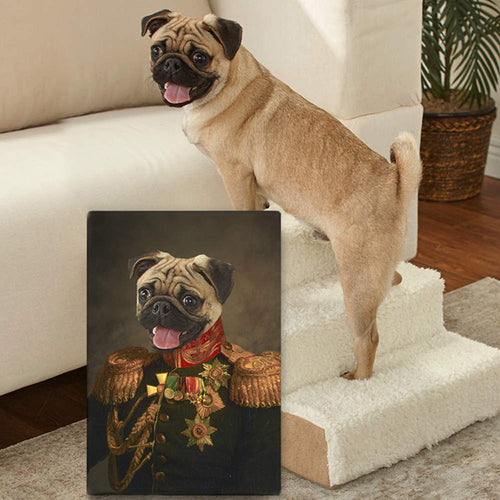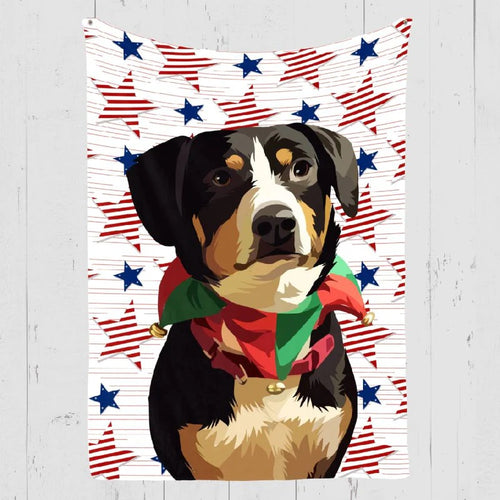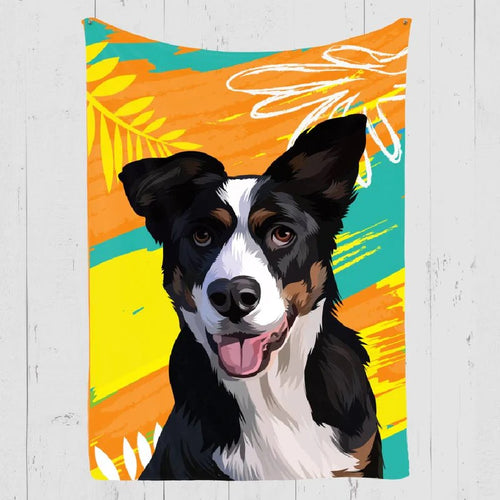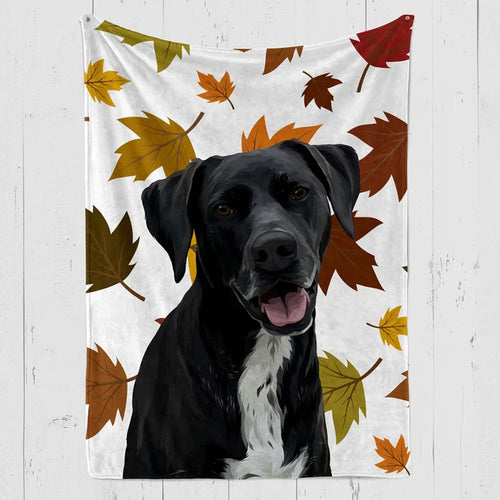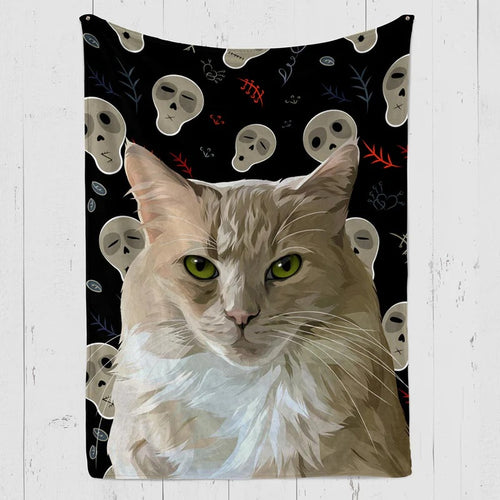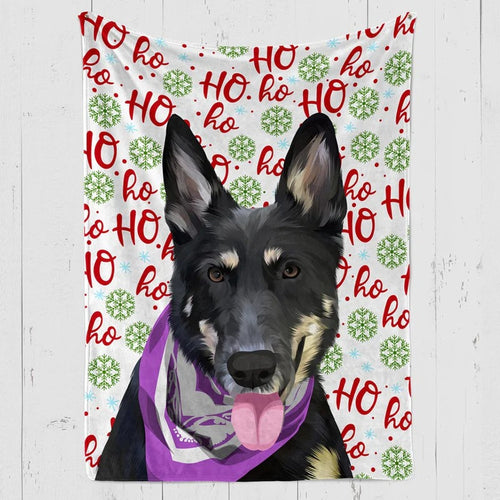
Have you observed that your dog has started to avoid jumping up on their favorite furniture, like the couch, or your dog can't jump on the bed suddenly? It could be concerning when your agile, vivacious dog indicates no interest in interests they used to experience. Your canine may have stopped jumping for several reasons, and the first step in fixing the trouble is to discover the likely causes.
A dog suddenly hesitant to jump up may have many reasons, including accidents, trauma, or underlying medical problems. Sometimes, joint problems like hip dysplasia or arthritis can be in charge. But it is also critical to recall less apparent factors in case your dog is not limping but won't jump, like worry or anxiety.
You could be better capable of helping your furry buddy feel more at ease and return to their former, jumpy self by figuring out the reasons for this variation in conduct.
In this blog, we can take a look at a few potential causes for your dog's suddenly hesitant to jump up and provide advice on a way to lead them to sense better. Remember that if you need clarification about your puppy's health or conduct, it is always great to consult a veterinarian for an expert opinion.
Why Can’t My Dog Jump Onto the Sofa? : Reasons
Following are some likely causes and the circumstances of the question, “Why can't my dog jump all of a sudden?”:
Injury
Your dog may have suffered an injury. This is more likely if your dog suddenly stops jumping on the couch and has been displaying other symptoms of an injury, such as limping or yelping when it moves. In this example, the best action could be to take your dog to the vet.
Your dog no longer thinks it is able to do it
Additionally, your dog may you need more time to get on the couch. This is much more likely if your dog is a puppy and has never been able to soar onto the couch.
Your dog doesn’t know you want them to jump on the sofa
Your dog may not recognize that you want them to leap onto the couch; that is another possibility. This is more likely if your dog just stands next to the couch, looks at you, and shows off stressed behaviors like head-twisting.
Illness or Infection
An underlying condition or infection, consisting of lumbosacral stenosis, intervertebral disc disorder (IVDD), or myasthenia gravis, may cause a dog not to jump up. These situations may also make your canine torpid and uncomfortable if you want to make leaping less attractive to him. In those situations, it's essential to find veterinary guidance to identify and cope with health issues. Remember that a non-jumping canine can be a dog's way of pronouncing, “Hey, owner, something's wrong!”
Your dog does not want to sit on the sofa
Your dog may not be interested in sitting on the sofa. This might result from the space being too small or the couch being too hot. This might be more likely if your dog now and again jumps up on the couch but no longer does so in other situations, like when the room is hot or when other human beings are on the couch.
Old age
Another possible explanation is that your dog is growing older and weaker, making it impossible to leap onto the couch. This would be much more likely if your dog had been trying unsuccessfully for a while to jump onto the couch before giving up. Adding a ramp or something for your dog to step on first in this situation may make it less difficult for your dog to climb onto the couch.
Physical Reasons for Jumping Difficulties

There can be several physical causes for “Why can’t my dog jump all of a sudden?” In this section, we will understand the possible joint, bone, muscle, and nerve troubles and how they probably affect your dog's capability to jump.
Bone and Joint Problems
Arthritis is a regular reason, making your dog hesitant to jump up because it can inflame and hurt their joints. As they age, dogs, like humans, can become stiff and creaky, making those gravity-defying leaps uncomfortable.
Hip dysplasia, a genetic condition in which the hip joint does not develop properly, is an additional potential problem. This may result in limping, discomfort, and stiffness, limiting your dog's capacity to jump. Other joint and bone conditions that could cause “my dog is having trouble jumping on the couch” besides hip dysplasia include:
- Osteomyelitis (bone infections)
- A condition that affects the spinal discs is called intervertebral disc disease (IVDD).
- Spinal canal narrowing is known as lumbosacral stenosis.
Do no longer worry if these situations sound frightening; your trusted nearby veterinarian can diagnose and treat them, probably restoring your canine's jumping capabilities.
Muscle and Nerve Problems
Your dog's lack of enthusiasm for jumping could be caused by factors related to muscles and nerves, in addition to joint and bone problems. For instance, a progressive spinal cord condition called degenerative myelopathy can cause weakness in your dog's back legs, making it difficult for them to jump or walk.
Other potential issues with the muscles and nerves include:
- a muscle or nerve injury or trauma
- a neuromuscular condition called myasthenia gravis that affects muscle strength
- Lethargy or weakness brought on by an infection or illness
Do you recall when you sprained your ankle and could not jog every day for several weeks? Dogs, too, can suffer from similar setbacks. Therefore, if your dog no longer jumps, it may be worthwhile to visit the vet to rule out any of these muscular or neurological conditions. You could also lighten the mood by telling a few jokes.
Factors to think about
Here are a few things to consider as you try to identify the root of the problem, especially if your dog is not limping but won't jump.
If your dog has previously jumped up on the couch
It would be helpful to think about what else occurred when your dog stopped jumping on the couch if it had previously done so. If your dog suddenly stopped doing it, it was probably the result of an injury, aging, or other change that made it no longer want to be on the couch.
When your dog will not jump up on the couch
If your dog occasionally jumps up on the couch, think about what is different when your dog does so. For instance, if your dog only behaves this way when you are on the couch, separation anxiety is more likely the cause.
How to Make Your Dog Jump More

Your options for handling the behavior if your dog won't jump but walks fine are listed below.
Training with positive reinforcement
One option is giving your dog positive reinforcement training by rewarding them whenever they indicate they are about to jump on the couch or do so.
Get assistance
The best course of action will be to take your dog to the vet if it appears they have been acting out because of an injury. Doing this allows you to cope with injuries and receive professional help that is catered to your dog.
Give your dog alternative places to go
Giving your dog a different place to go, such as setting down a dog bed in the room, may help if they do not want to be on the couch.
Make it simpler for your dog to climb up on the couch
A ramp or platform for your dog to step on could also make it simpler for him to climb up onto the couch.
Preventing Difficulties with Jumping
Regular Physical Activity
Jumping issues can be avoided by keeping your dog physically fit through regular exercise and activity. A dog's overall well-being depends on activities like walks, fetch, and having interactive toys available. Regular exercise may ease the pain brought on by osteoarthritis or joint disease, allowing your furry friend to jump higher and climb stairs with less difficulty.
Starting the ball rolling with exercise can help keep your dog's muscles strong and flexible and possibly support the maintenance of a healthy ball and socket within their joints. Exercise sessions that are brief and sweet are preferable to playdates that last for hours; consistency is important, like posting on social media stories before they vanish.
Good Nutrition
Maintaining your dog's joints' health and smooth operation requires a well-balanced diet. By eating the right foods, one can lessen their risk of developing joint-related issues like osteoarthritis or other joint diseases, which can make it difficult to jump or cause the dog won't go upstairs.
You should give your dog:
- High-quality, nutritionally complete dog food with the ideal ratio of fat, protein, vitamins, and minerals.
- A diet rich in glucosamine and chondroitin, two nutrients that support the cushioning and health of the joints.
- The right quantity of food to maintain a healthy body weight for their age, breed, and activity level. No dog wants to feel like an overweight sausage that cannot jump onto the couch.
Regular exercise and a healthy diet will help your dog avoid joint problems that could make jumping challenging. Dogs, like humans, require a comprehensive, holistic approach to being in top condition.
Environment Changes at Home
Pet-friendly furnishings

Providing your dog with a comfortable environment is crucial, particularly if they suddenly lose the ability or desire to jump. Buying lower, more accessible furniture is one way to make your space more dog-friendly. For instance, consider getting a lower bed or sofa to lessen the strain on their back and joints when attempting to jump.
Smaller dogs may suddenly be having trouble jumping onto higher surfaces, like Yorkies. If so, you might want to consider giving them a comfortable bed on the ground so they can rest and feel safe without exerting themselves.
Increasing Accessibility
A few easy changes can be made to help your dog regain access to their favorite areas. Here are some ways you can aid your dog’s accessibility:
- Provide pet ramps or stairs for your dog's favorite places, such as beds, sofas, or other high surfaces. This can be particularly beneficial for dogs with trouble leaping because of patella luxation or strained muscular tissues.
- Use treats and effective reinforcement to make the experience more pleasant if your dog is scared or reluctant to use the stairs or ramps.
- Check and specify your dog's anal glands frequently to save you pain or pain that might inflict the dog's sudden reluctance to jump up.
- If your dog cannot climb onto elevated surfaces, provide cushy sound-asleep alternatives for them on the floor, along with plush dog beds or cushions.
Remember that even if they cannot soar anymore, your canine may still need to play and interact with you. Continue giving them their favorite toys and search for new games that do not require jumping. Consider concealing the treat, puzzles, fetch while lying down, or even a toy that wobbles on the ground instead of bouncing.
Even if your dog's leaping days are over due to age, injury, or fear, you can help them feel more at ease and reduce their difficulties by making these straightforward adjustments to your private home. This will ensure they continue to revel in their lifestyles and aren't bored.
Continuous Care and Monitoring
How to Monitor Your Dog's Health
When your dog won't jump but walks fine, it's important to watch their health. For example, if your bushy pal has diabetes, their mobility can be hampered by nerve or joint pain. In this case, you should seek advice from your veterinarian to regularly monitor your dog's health and make any required adjustments to its remedy routine.
Regular examinations by your veterinarian can help identify potential health problems before they get out of hand. Remember that because our pets cannot communicate with us, it is up to us to perform detective work.
Frequently Asked Questions
Why Is My Dog Acting Lethargic And Won’t Jump?
Dogs' lethargy may be caused by several factors, including pain, infection, and possibly aging. If your pet starts to jump, this could be a sign of pain. It is best to monitor their behavior closely and, if necessary, consult a veterinarian.
Why is My Dog Shaking And Struggling To Jump?
Shaking and difficulty jumping could be signs of physical suffering or stress. Check to see if it is routine or brief. Sometimes it is a response to suffering or anxiety. Keep an eye on them, and remember to consult a veterinarian.
Does My Dog Yelp When To Jump Up?
Pain. Yelping is a sign that your dog is experiencing physical pain. Your dog may have arthritis if they yelp when attempting to climb stairs or can't jump on bed suddenly.
How can I determine if my dog's hesitation is due to pain?
Your dog might not want to jump if they have suffered back, leg, or hip injuries. They might find it painful to move and stretch. Back Your dog may not want to jump or move around due to back problems. Back pain in dogs is frequently brought on by intervertebral disc disease.
Can behavioral issues cause hesitation in jumping?
Do not undervalue the influence of our animal pets' emotions and mental health. Dogs can feel fear, worry, or even a brief lack of confidence, just like humans do. Your dog may suddenly be hesitant to jump up because of traumatic events, recent environmental changes, or even age-related changes. A dog behaviorist can offer insightful advice to assist your pup in regaining their jumping spirit.
When should I seek professional help for my dog's hesitation to jump?
It can be worrying if your dog suddenly stops jumping. It is crucial to watch for any symptoms or signs pointing to a more serious problem.
The following are some signs that may motivate a trip to the vet:
- Lethargy or faded energy
- Fever
- uncommon gait, inclusive of limping
- a smaller variety of motion
- refusal to play or workout
- Vomiting
- Seizures
Bear in mind that dogs cannot talk their pain to us. Therefore, we are obligated as responsible puppy owners to display their behavior and seek professional help when needed.
Conclusion
Ultimately, if you have noticed that your dog used to leap right onto the couch, it's crucial to think about many reasons for this transformation in behavior. The reasons for your furry pal's reluctance vary, from accidents and joint troubles to tension and age-related aches. The first step in giving them the eye and support they want to regain their confidence is remembering that expertise inspires this.
You can help your loved canine companion overcome bodily or emotional obstacles that can impede their potential to jump by evicting ability troubles and searching for professional recommendations when necessary. There are many ways to ensure that your dog keeps steering a colorful and lively lifestyle, whether treating joint problems, improving the surroundings, or imposing first-rate reinforcement schooling. Suppose you are unsure of the underlying reason for your dog's hesitation. In that case, you have to seek advice from a veterinarian proper away because they could provide personalized advice based on your dog's specific desires.
Finally, knowing the complexities underlying your dog's sudden hesitation to jump up can help create a happier and healthier companionship. Our four-legged friends deserve the best care possible. Accept the challenge of discovering what suits your particular dog best, and remember that it will be worth the effort to see them comfortable, confident, and prepared to face the world one leap at a time.
Sources :
Oodle Life: https://www.oodlelife.com/my-dog-suddenly-wont-jump-up/
American Kennel Club: https://www.akc.org/expert-advice/training/reasons-your-dog-is-whining/
Antioch Veterinary Hospital: https://antiochvet.com/blog/signs-of-dog-in-pain/
Dogcarelife: https://dogcarelife.com/dog-wont-jump-but-walks-fine-unraveling-the-mystery/
Recommended Articles :
Latest Review on Woof Blankets
To have such a masterpiece by my side every day is a gift for me and my memories with Rex. Thank you WoofBlankets for such an opportunity to recreate his image on a blanket.Lara o’ Miguel US, California
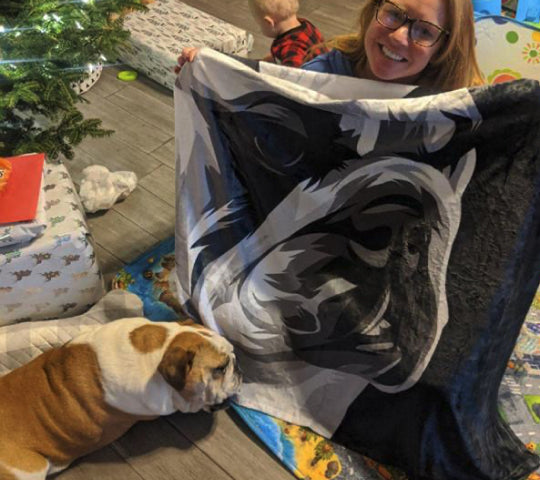
COLLECTION WORTH EVERY PENNY
BEST SELLERS
-
Woofy Single Color Custom Pet Blanket
![Woofy Single Custom Pet Blanket – Woof Blanket]()
- -41%
BlanketsSHOP NOW- Regular price
- from $64.95
- Sale price
- from $64.95
- Regular price
-
$109.95 - Unit price
- per
Sold out -
Exclusive Christmas Custom Pet Blanket
![Exclusive Custom Pet Blanket]()
- -39%
BlanketsSHOP NOW- Regular price
- from $69.95
- Sale price
- from $69.95
- Regular price
-
$114.95 - Unit price
- per
Sold out -
Christmas Custom Pet Blanket
![Christmas Custom Pet Blanket - Custom Dog Blankets]()
- -40%
BlanketsSHOP NOW- Regular price
- from $69.95
- Sale price
- from $69.95
- Regular price
-
$115.95 - Unit price
- per
Sold out -
Watercolor Pet Portraits
![]() SHOP NOW
SHOP NOW- Regular price
- from $59.95
- Sale price
- from $59.95
- Regular price
-
- Unit price
- per
Sold out -
Woofy Christmas Custom Dog Blanket
![Woofy Christmas Custom Dog Blanket]()
- -39%
BlanketsSHOP NOW- Regular price
- from $69.95
- Sale price
- from $69.95
- Regular price
-
$114.95 - Unit price
- per
Sold out -
Modern Pet Owner Portrait
![]()
- -32%
CanvasSHOP NOW- Regular price
- from $84.95
- Sale price
- from $84.95
- Regular price
-
$124.95 - Unit price
- per
Sold out -
Woof Splash Custom Pet Blanket
![Woof Splash Custom Pet Blanket]()
- -39%
BlanketsSHOP NOW- Regular price
- from $69.95
- Sale price
- from $69.95
- Regular price
-
$114.95 - Unit price
- per
Sold out -
The Admiral - Custom Pet Portrait
![The Admiral - Custom Pet Portrait Online]()
- NEW
- -25%
CanvasSHOP NOW- Regular price
- from $59.95
- Sale price
- from $59.95
- Regular price
-
$79.95 - Unit price
- per
Sold out -
Wings of Loyalty - Custom Pet Portrait
![]()
- NEW
CanvasSHOP NOW- Regular price
- from $59.95
- Sale price
- from $59.95
- Regular price
-
- Unit price
- per
Sold out -
Pet Memorial Custom Photo Collage Blanket
![Personalized pet memorial quilt with photos]()
- -41%
BlanketsSHOP NOW- Regular price
- from $64.95
- Sale price
- from $64.95
- Regular price
-
$109.95 - Unit price
- per
Sold out -
Celestial Paws - Custom Pet Portrait
![]() CanvasSHOP NOW
CanvasSHOP NOW- Regular price
- from $59.95
- Sale price
- from $59.95
- Regular price
-
- Unit price
- per
Sold out -
The Loyal Soul - Custom Pet Portrait
![]()
- NEW
SHOP NOW- Regular price
- from $59.95
- Sale price
- from $59.95
- Regular price
-
- Unit price
- per
Sold out -
Cartoonized Pet Portraits (New)
![Cartoonized Pet Custom Portraits Online]()
- -36%
SHOP NOW- Regular price
- from $59.95
- Sale price
- from $59.95
- Regular price
-
$93.95 - Unit price
- per
Sold out -
The French Sailor - Custom Pet Portrait
![]()
- -25%
CanvasSHOP NOW- Regular price
- from $59.95
- Sale price
- from $59.95
- Regular price
-
$79.95 - Unit price
- per
Sold out -
The Policeman - Custom Pet Portrait
![]()
- NEW
- -25%
CanvasSHOP NOW- Regular price
- from $59.95
- Sale price
- from $59.95
- Regular price
-
$79.95 - Unit price
- per
Sold out -
The General - Custom Pet Portrait
![]()
- NEW
- -25%
CanvasSHOP NOW- Regular price
- from $59.95
- Sale price
- from $59.95
- Regular price
-
$79.95 - Unit price
- per
Sold out -
Woof Love Custom Pet Blanket
![Woof Love Custom Pet Blanket]()
- -39%
BlanketsSHOP NOW- Regular price
- from $69.95
- Sale price
- from $69.95
- Regular price
-
$114.95 - Unit price
- per
Sold out -
Summer Time Custom Pet Blanket
![Summer Time Custom Pet Blanket]()
- -39%
BlanketsSHOP NOW- Regular price
- from $69.95
- Sale price
- from $69.95
- Regular price
-
$114.95 - Unit price
- per
Sold out -
The Ambassador - Custom Pet Portrait
![The Ambassador - Custom Pet Portrait Online]()
- NEW
- -25%
CanvasSHOP NOW- Regular price
- from $59.95
- Sale price
- from $59.95
- Regular price
-
$79.95 - Unit price
- per
Sold out -
Fall In Love Custom Pet Blanket
![Fall In Love Custom Dog Blanket]()
- NEW
- -39%
BlanketsSHOP NOW- Regular price
- from $69.95
- Sale price
- from $69.95
- Regular price
-
$114.95 - Unit price
- per
Sold out -
The Classy Lady - Custom Pet Portrait
![The Classy Lady]()
- NEW
- -25%
CanvasSHOP NOW- Regular price
- from $59.95
- Sale price
- from $59.95
- Regular price
-
$79.95 - Unit price
- per
Sold out -
The Duke - Custom Pet Portrait
![The Duke - Custom Pet Portrait]()
- NEW
- -25%
CanvasSHOP NOW- Regular price
- from $59.95
- Sale price
- from $59.95
- Regular price
-
$79.95 - Unit price
- per
Sold out -
Dog In Suit- Custom Pet Portrait
![Dash Dog In Suit- Custom Pet Portrait Online]()
- NEW
- -25%
CanvasSHOP NOW- Regular price
- from $59.95
- Sale price
- from $59.95
- Regular price
-
$79.95 - Unit price
- per
Sold out -
The Princess - Custom Pet Portrait
![]()
- NEW
- -25%
CanvasSHOP NOW- Regular price
- from $59.95
- Sale price
- from $59.95
- Regular price
-
$79.95 - Unit price
- per
Sold out -
Modern Pet Portrait with One Mug
![Modern Pet Portrait with One Mug]()
- -25%
Print MaterialSHOP NOW- Regular price
- from $99.95
- Sale price
- from $99.95
- Regular price
-
$133.95 - Unit price
- per
Sold out -
The Aristocrat - Custom Pet Portrait
![The Aristocrat - Custom Pet Portrait At Best Price]()
- NEW
- -25%
CanvasSHOP NOW- Regular price
- from $59.95
- Sale price
- from $59.95
- Regular price
-
$79.95 - Unit price
- per
Sold out -
Single Color Custom Blanket with 1 Mug
![Single Color Custom Blanket with 1 Mug]() BlanketsSHOP NOW
BlanketsSHOP NOW- Regular price
- from $99.95
- Sale price
- from $99.95
- Regular price
-
- Unit price
- per
Sold out -
Single Color Custom Blanket with 2 Pillows
![Single Color Custom Pet Blanket with 2 Pillows]()
- -21%
BlanketsSHOP NOW- Regular price
- from $99.95
- Sale price
- from $99.95
- Regular price
-
$125.95 - Unit price
- per
Sold out -
The Dog in Suit Custom Pet Mug
![]()
- -20%
MugsSHOP NOW- Regular price
- $39.95
- Sale price
- $39.95
- Regular price
-
$49.95 - Unit price
- per
Sold out -
Angel Custom Pet Mug
![]()
- -20%
MugsSHOP NOW- Regular price
- $39.95
- Sale price
- $39.95
- Regular price
-
$49.95 - Unit price
- per
Sold out -
This Human Belongs To - Custom Pet Mug
![]()
- NEW
- -20%
MugsSHOP NOW- Regular price
- $39.95
- Sale price
- $39.95
- Regular price
-
$49.95 - Unit price
- per
Sold out -
It's Not Dog Hair Custom Pet Mug
![]()
- NEW
- -20%
MugsSHOP NOW- Regular price
- $39.95
- Sale price
- $39.95
- Regular price
-
$49.95 - Unit price
- per
Sold out -
My Dog Is My Valentine Custom Pet Mug
![]()
- NEW
- -20%
MugsSHOP NOW- Regular price
- $39.95
- Sale price
- $39.95
- Regular price
-
$49.95 - Unit price
- per
Sold out -
3 Photos With Message Custom Pet Mug
![]()
- NEW
- -20%
MugsSHOP NOW- Regular price
- $39.95
- Sale price
- $39.95
- Regular price
-
$49.95 - Unit price
- per
Sold out -
My Valentine Has Four Legs- Personalized Mugs
![]()
- NEW
- -20%
MugsSHOP NOW- Regular price
- $39.95
- Sale price
- $39.95
- Regular price
-
$49.95 - Unit price
- per
Sold out -
Dog Mamma Custom Pet Coffee Mug
![]()
- -20%
MugsSHOP NOW- Regular price
- $39.95
- Sale price
- $39.95
- Regular price
-
$49.95 - Unit price
- per
Sold out -
Uncle Sam - Custom Pet Portrait
![]()
- NEW
- -25%
CanvasSHOP NOW- Regular price
- from $59.95
- Sale price
- from $59.95
- Regular price
-
$79.95 - Unit price
- per
Sold out -
The Revolutionary Emperor - Custom Pet Portrait
![]()
- NEW
- -25%
CanvasSHOP NOW- Regular price
- from $59.95
- Sale price
- from $59.95
- Regular price
-
$79.95 - Unit price
- per
Sold out -
The Princess Paws - Custom Pet Portrait
![]()
- -25%
CanvasSHOP NOW- Regular price
- from $59.95
- Sale price
- from $59.95
- Regular price
-
$79.95 - Unit price
- per
Sold out -
The Dark Crusader Knight - Custom Pet Portrait
![]()
- -25%
CanvasSHOP NOW- Regular price
- from $59.95
- Sale price
- from $59.95
- Regular price
-
$79.95 - Unit price
- per
Sold out

